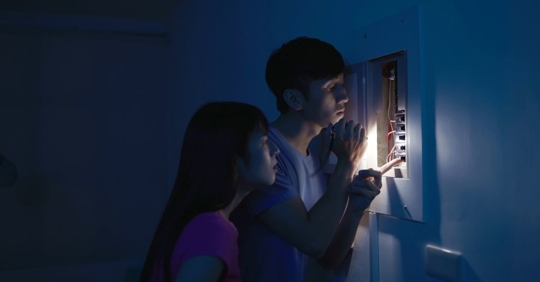Checking Circuit Breakers and Fuses
As the summer months approach, it's crucial to ensure that your home's electrical system is prepared to handle the increased demand. One of the first steps in this process is inspecting your circuit breakers and fuses. These components are the backbone of your electrical system, protecting your home from overloads and potential electrical fires. Over time, circuit breakers and fuses can wear out or become damaged, which can lead to inefficiencies or even dangerous situations. Look for signs of wear such as scorch marks, frayed wires, or a breaker that frequently trips. If you notice any of these signs, it might be time to replace the component or consult with a professional electrician.
In addition to visual inspections, it's important to understand the load capacity of your circuits. Overloading a circuit can cause it to trip, cutting off power to your appliances and potentially causing damage. Consider the electrical demands of your household during peak summer usage, such as air conditioners, fans, and other appliances. If you find that your circuits are frequently overloaded, it may be necessary to upgrade your electrical panel to accommodate the increased demand. This is where a professional electrician can provide invaluable assistance, ensuring that your system is both safe and efficient.
Updating Outdated Wiring
Outdated wiring is a common issue in older homes and can pose significant risks, especially during the summer months when electrical usage is at its peak. Older wiring systems, such as knob-and-tube or aluminum wiring, may not be equipped to handle modern electrical loads, increasing the risk of overheating and electrical fires. If your home still has this type of wiring, it’s crucial to consider an upgrade. Modern wiring materials, such as copper, are not only safer but also more efficient, reducing energy loss and improving the overall performance of your electrical system.
Rewiring a home is a significant investment, but the benefits far outweigh the costs. Not only does it enhance the safety of your home, but it also increases its value. If you're unsure whether your home needs rewiring, look for signs such as dimming lights, frequent circuit breaker trips, or outlets that are warm to the touch. Consulting with a professional electrician can provide you with a clear assessment of your current wiring and help you make an informed decision about upgrading.
Evaluating Surge Protection
Summer storms are notorious for causing power surges, which can damage your home’s electrical appliances and systems. To protect your home from these surges, it's essential to evaluate your current surge protection measures. A whole-house surge protector is a wise investment, as it provides a first line of defense against external surges caused by lightning strikes or power outages. These devices are installed at your electrical panel and can prevent surges from entering your home’s wiring system.
In addition to whole-house surge protectors, consider using individual surge protectors for sensitive electronics such as computers, televisions, and home entertainment systems. These devices offer an additional layer of protection and can prevent costly damage to your valuable electronics. By implementing a comprehensive surge protection strategy, you can ensure that your home is safeguarded against the unpredictable nature of summer storms.
Optimizing Air Conditioning Systems
As temperatures rise, air conditioning systems become essential for maintaining a comfortable home environment. However, inefficient AC units can lead to skyrocketing energy bills. To ensure your system is running efficiently, start with regular maintenance. Clean or replace air filters every month during peak usage to improve airflow and efficiency. Additionally, ensure that the outdoor unit is free of debris and has adequate clearance for optimal performance. Regular maintenance not only extends the life of your AC unit but also reduces energy consumption.
Another way to enhance energy efficiency is by investing in a programmable thermostat. These devices allow you to set specific temperatures for different times of the day, ensuring that your AC unit is not running unnecessarily when no one is home. Consider upgrading to an energy-efficient model if your current AC unit is outdated. Modern units use less energy and cool more effectively, providing long-term savings on your energy bills.
Utilizing Energy-Efficient Lighting
Lighting is another area where homeowners can significantly reduce energy consumption during the summer months. Traditional incandescent bulbs generate a lot of heat, which can increase the load on your air conditioning system. Switching to LED lighting is a simple yet effective way to reduce both heat output and energy usage. LEDs use up to 75% less energy and last significantly longer than incandescent bulbs, making them a cost-effective choice for any home.
Strategic lighting placement can also contribute to energy savings. Utilize natural light during the day by opening curtains and blinds, and place lamps and fixtures in areas where they are most needed. Consider installing dimmer switches to adjust lighting levels based on your needs, further reducing energy consumption. By making these small changes, you can create a more energy-efficient home environment.
Implementing Smart Home Technology
Smart home technology offers innovative solutions for monitoring and reducing energy consumption. Smart plugs and energy monitors allow you to track the energy usage of individual appliances, providing insights into where you can cut back. These devices can be controlled remotely, allowing you to turn off appliances when not in use, even if you’re not at home.
Smart systems can also optimize appliance usage by scheduling them to run during off-peak hours, reducing the electrical load on your system. For instance, you can program your dishwasher or washing machine to run overnight when energy demand is lower. By integrating smart home technology, you can achieve greater control over your energy usage, leading to significant savings on your utility bills.
Inspecting Outdoor Electrical Systems
Summer is the perfect time to enjoy outdoor activities, but it's important to ensure that your outdoor electrical systems are safe and functional. Begin by inspecting outdoor outlets, lighting, and wiring for any signs of damage or wear. Look for frayed wires, cracked outlets, or rusted fixtures, as these can pose serious safety hazards. If you notice any issues, it’s best to contact a professional electrician to address them promptly.
When using electrical equipment near pools or wet areas, safety should be a top priority. Ensure that all outdoor outlets are equipped with weatherproof covers and are protected by Ground Fault Circuit Interrupters (GFCIs). These devices are designed to shut off electrical power in the event of a ground fault, preventing electrical shocks. Always keep electrical cords and devices away from water to minimize the risk of accidents.
Testing Ground Fault Circuit Interrupters (GFCIs)
GFCIs play a crucial role in preventing electrical shocks, especially in areas prone to moisture such as kitchens, bathrooms, and outdoor spaces. Regular testing of GFCIs is essential to ensure they are functioning correctly. To test a GFCI, simply press the "test" button on the outlet. If the power cuts off, the GFCI is working properly. To reset, press the "reset" button. If the outlet does not respond to the test, it may need to be replaced.
In addition to testing, ensure that all high-risk areas in your home are equipped with GFCIs. This includes any outlets near water sources or in outdoor locations. By maintaining functional GFCIs throughout your home, you can significantly reduce the risk of electrical shocks and enhance the overall safety of your electrical system.
Recognizing Warning Signs of Electrical Problems
Being able to recognize the warning signs of electrical problems can prevent minor issues from escalating into major hazards. Common signs include flickering lights, buzzing sounds from outlets or switches, and burning smells. These symptoms can indicate underlying issues such as loose wiring, faulty connections, or overloaded circuits.
If you notice any of these warning signs, it’s important to take immediate action. Turn off the affected circuit and contact a professional electrician to assess the situation. Ignoring these signs can lead to more serious problems, including electrical fires. By staying vigilant and addressing issues promptly, you can ensure the safety and reliability of your home’s electrical system.
Assessing Appliance Usage
During the summer months, the increased use of appliances such as air conditioners, fans, and refrigerators can put a significant strain on your electrical system. To manage this increased load, it's important to assess your appliance usage and make adjustments where necessary. Consider staggering the use of high-energy appliances to prevent overloading circuits. For example, avoid running the dishwasher and washing machine simultaneously.
In addition to staggering usage, unplug appliances when they are not in use to reduce phantom loads, which can contribute to higher energy bills. By being mindful of your appliance usage, you can prevent circuit overloads and ensure that your electrical system operates efficiently throughout the summer.
Planning for Power Outages
Summer storms and increased electrical demand can lead to power outages, which can be inconvenient and potentially damaging to your home. To prepare for these situations, consider investing in backup power solutions such as portable generators or battery backups. These devices can provide temporary power to essential appliances, ensuring that your home remains functional during an outage.
When selecting a backup power solution, consider the size and power needs of your home. A professional electrician can help you determine the best option for your specific situation. By planning ahead, you can minimize the impact of power outages and maintain peace of mind during the summer months.
Scheduling Professional Inspections
Regular professional electrical inspections are essential for maintaining the safety and efficiency of your home’s electrical system. During an inspection, a qualified electrician will assess the condition of your wiring, outlets, and electrical panel, identifying any potential issues before they become major problems. This proactive approach can prevent costly repairs and ensure that your system is prepared for the increased demands of summer.
When selecting an electrician, look for a licensed and experienced professional who can provide a comprehensive assessment of your electrical system. In Wake Forest, NC, Zar Electric offers expert electrical services to help homeowners maintain safe and efficient systems. By scheduling regular inspections, you can ensure that your home is well-prepared for the summer months.
Dealing with Overheating Electrical Panels
Overheating electrical panels are a common issue during the summer months, as increased usage can lead to excessive heat buildup. This can pose significant risks, including electrical fires and damage to your system. To address this issue, ensure that your electrical panel is well-ventilated and free of obstructions. Consider installing a cooling fan or vent to improve airflow and reduce heat buildup.
In addition to improving ventilation, it’s important to manage the load on your electrical panel. Avoid using multiple high-energy appliances simultaneously, and consider upgrading your panel if it is outdated or unable to handle your current electrical demands. By taking these steps, you can prevent overheating and ensure the safety of your home’s electrical system.
Managing Humidity and Moisture
Humidity and moisture can have detrimental effects on your electrical system, leading to corrosion and damage to components. To protect your system, ensure that your home is well-ventilated and that moisture-prone areas are kept dry. Use dehumidifiers in basements and other damp areas to reduce humidity levels.
Additionally, inspect your electrical components for signs of moisture damage, such as rust or corrosion. If you notice any issues, contact a professional electrician to assess and address the problem. By managing humidity and moisture, you can extend the life of your electrical system and prevent costly repairs.
Handling Pest-Related Electrical Damage
Summer is prime time for pests, and some can cause significant damage to your electrical system. Rodents, for example, are known to chew through wires, leading to shorts and potential fire hazards. To prevent pest-related damage, seal any entry points to your home and keep outdoor areas clean and free of debris.
If you suspect pest-related damage, it’s important to address the issue promptly. Contact a professional electrician to inspect your system and make any necessary repairs. By taking preventative measures and staying vigilant, you can protect your home from the risks associated with pest-related electrical damage.
Zar Electric Is Here for You This Summer (and Beyond!)
As summer approaches, ensuring the safety and efficiency of your home’s electrical system is more important than ever. By following these tips and addressing potential issues, you can enjoy a worry-free summer. If you need assistance with inspections, upgrades, or repairs, Zar Electric is here to help. Our team of experienced electricians is dedicated to providing top-notch service to ensure your home is safe and efficient. Contact us today to schedule a consultation and take the first step towards a safer, more efficient home.
Call Zar Electric now at (919) 200-6551 or contact us online.


